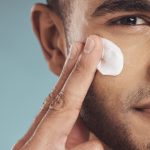If you are regularly exposed to chemical irritants, outdoor elements or the sun while working, your skin might suffer. In this blog, we shed light on the most common work-related skin conditions. Keep reading to learn more about occupational skin disease.
Common job-related skin problems
Most people spend 40 or more hours a week at work, whether at an office, industrial facility or in the field. It is not unexpected that we may encounter substances or work with materials that irritate our skin. Skin issues related to your job may be caused by chemicals, allergens or other irritants that are present in your workplace. In some cases, skin problems may even develop because of work-related stress.
Occupational skin disease is most commonly reported in industries such as manufacturing, food production, hospitality, healthcare, cosmetology and outdoor jobs.
Occupational irritants
Some people use dyes, detergents or other chemicals at work that can cause so-called irritant contact dermatitis. Even milder substances like glue, hair dyes, residential pesticides and car fluids can be problematic.
Irritant contact dermatitis occurs when the skin is exposed to a chemical. This chemical causes damage to the skin faster than the skin can repair itself. About 80 percent of cases of contact dermatitis are due to chemical exposure. Symptoms can include a red, itchy rash and even blisters, swelling or open sores.
Industries that may require employees to use chemicals routinely include:
- Manufacturing
- Healthcare
- Printing
- Construction
- Automotive
- Cosmetology
- Pest control
- Farming
- Professional cleaners
The Occupational Safety and Health Administration (OSHA) has guidelines to protect workers from dermal exposure and other occupational hazards.
Workplace allergies
Allergens are substances that cause a rash after contact. Allergic contact dermatitis – a reaction to certain allergens – makes up about 10 percent of occupational skin diseases. People are allergic to different things, and sometimes they may encounter allergens in their working environment. Examples of common workplace allergens include:
- Latex gloves
- Poison ivy or oak
- Pollen
- Insects
- Nail polish
- Cosmetic products
- Soaps
- Certain food
- Fibers in clothing
If you know you are allergic to a particular substance, take precautions to avoid exposure. If you have red, itchy skin after handling a new substance, talk to your dermatologist. A dermal patch test can help determine the cause.
Other skin irritants
Regardless of your industry, your daily routine at work can sometimes have a negative effect on your skin. For example:
- Frequent hand washing can lead to dry, flaky or irritated skin.
- Using tools without protective gloves can cause callouses to form on your fingers or palms.
- Standing for long shifts without supportive shoes can cause blisters or warts on the feet.
- Constant exposure to moisture can lead to contact dermatitis
Where you work can also harm your skin, especially if you work outdoors or in a hot or damp environment. Repeated exposure to the sun without skin protection can cause sunburn or skin damage that can lead to skin cancer. Working in areas that are too warm can dry out your skin.
Stress-related skin reactions
Even work-related stress can lead to skin conditions. Stress hormones cause your skin to be more sensitive, making it more susceptible to rashes and other skin problems. These hormones can break down the collagen protein that protects the skin and keeps it elastic and firm.
Constant stress can also cause the top layer of skin to become disrupted, leaving it more vulnerable to irritants and acne breakouts. Furthermore, stress can affect hair follicles, causing hair loss or inhibiting hair growth. Chronic skin disorders like rosacea and atopic dermatitis can flare up due to stress.
How to protect yourself from occupational skin disease
Workplace skin conditions can be managed and prevented by taking proper safety precautions. Many of these tips apply to several types of skin irritants:
Wear gloves
Always wear work gloves to minimize calluses on your hands when using tools or equipment. Wear gloves to protect your skin from chemicals, hair dyes and other substances that could cause a reaction. Use gloves when working outside to prevent exposure to plants and insects.
Find an alternative
When possible, reduce or eliminate your exposure to chemicals and allergens. If cleaning agents cause rashes or other job-related skin issues, ask your employer for a greener version. Try rubber nitrile gloves if you are allergic to latex. If your shoes are causing blisters or corns, add an insole or look for a more supportive shoe.
Cover up
Wear an apron or other protective gear to avoid splashing detergents, foods or other substances on your clothing when working. When working outside, always wear sunscreen and reapply it every few hours. Wear a wide-brimmed hat for further protection from the sun.
Use lotion
If you wash your hands frequently in your job, regularly apply a protective hand lotion to prevent drying and chapping. If you have a mild rash, try an over-the-counter hydrocortisone cream to relieve itchiness.
Ask a professional
Work-related contact dermatitis and other skin diseases can affect workers of all ages. While typically not life-threatening, they can be painful and aggravating. If you are concerned about an occupational skin problem, see your dermatologist.
Our dermatologists at Columbia Skin Clinic can help you stay safe at work. Call today to make an appointment for a consultation.






